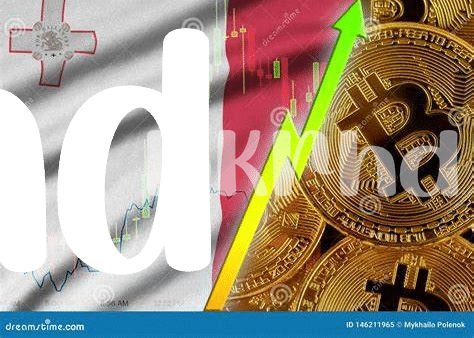Overview of Bitcoin Laws in Malta 🇲🇹

Malta has emerged as a pioneer in establishing clear regulations for Bitcoin and other cryptocurrencies. The country’s proactive approach has positioned it as a favorable destination for crypto-related businesses seeking a supportive legal framework. By providing legal clarity and certainty, Malta aims to foster innovation and attract investment in the burgeoning digital asset industry. Moreover, Malta’s forward-thinking stance on blockchain technology has garnered international attention, setting it apart as a leader in the crypto space.
Underpinning Malta’s regulatory framework is a commitment to balancing innovation with consumer protection. This approach has created a conducive environment for cryptocurrency startups to thrive while ensuring safeguards are in place to mitigate risks. With a focus on transparency and compliance, Malta’s Bitcoin laws reflect a progressive attitude towards embracing the potential of decentralized finance in a rapidly evolving digital landscape.
Key Requirements for Cryptocurrency Businesses 📝
Key Requirements for Cryptocurrency Businesses 📝:
Navigating the landscape of operating a cryptocurrency business involves meeting certain key requirements that are essential for compliance and success in the industry. These requirements encompass aspects such as licensing, registration, and adherence to anti-money laundering (AML) and know your customer (KYC) regulations. Establishing robust security measures to protect digital assets, implementing transparent financial reporting procedures, and ensuring transparency in transactions are also vital components of operating a cryptocurrency business. Furthermore, maintaining a strong focus on customer protection and privacy is integral to building trust and credibility within the cryptocurrency ecosystem.
Cryptocurrency businesses must also stay abreast of evolving regulatory frameworks and technological advancements to adapt and thrive in this dynamic market. Embracing innovation while adhering to regulatory standards is key to sustaining a competitive edge and fostering growth opportunities within the cryptocurrency sector. By diligently meeting these key requirements, cryptocurrency businesses can position themselves for long-term success and contribute to the overall maturation of the industry.
Impact of Regulations on Investors 💰

Establishing clear regulations surrounding Bitcoin in Malta has undoubtedly impacted investors within the cryptocurrency space. The structured framework provides a sense of security and legitimacy, attracting both seasoned traders and newcomers looking to enter the market. By aligning with the established laws, investors can navigate the crypto landscape with more confidence, knowing that they are operating within a supportive legal environment. This increased clarity and stability can potentially encourage greater participation and investment in Bitcoin and other cryptocurrencies, contributing to the growth of the digital asset market in Malta.
The regulations also serve as a safeguard, offering protection against fraudulent schemes and ensuring a level of transparency that fosters trust among investors. This transparency not only benefits individual investors but also contributes to the overall credibility of the cryptocurrency market in Malta. With the backing of clear regulations, investors are more likely to view Bitcoin as a legitimate and viable investment option, further solidifying its position within the financial landscape.
Comparison with Other Countries’ Crypto Laws 🌍

When analyzing the cryptocurrency landscape globally, Malta’s approach to Bitcoin regulations stands out for its forward-thinking stance. While some countries embrace cryptocurrencies with open arms, others remain skeptical and impose stringent restrictions. Malta’s strategy in fostering a conducive environment for crypto businesses and investors often serves as a benchmark for comparison with other jurisdictions. By examining the differences in crypto laws across various countries, we gain valuable insights into the diverse approaches taken towards digital assets. This comparative analysis sheds light on the potential benefits and challenges inherent in different regulatory frameworks. To delve deeper into upcoming regulatory changes in other regions, exploring the future of cryptocurrency in Maldives can provide additional perspective on evolving international crypto policies. Upcoming regulatory changes for Bitcoin in Mali
Challenges and Controversies in the Legislation 🤔
Navigating the landscape of cryptocurrency regulations within Malta has presented its fair share of challenges and controversies. One major point of contention has been the balance between fostering innovation in the blockchain space while also ensuring consumer protection and financial stability. Additionally, the evolving nature of technology often outpaces regulatory frameworks, leading to ambiguity in compliance requirements for businesses operating in this sector. Another area of debate revolves around the potential impact on financial privacy and data security with the increased transparency that comes with blockchain transactions. These issues highlight the complexities involved in creating a regulatory environment that supports the growth of cryptocurrency while safeguarding against potential risks. As stakeholders continue to engage in dialogue and adaptation, the landscape of cryptocurrency regulations in Malta remains dynamic and subject to ongoing scrutiny and development.
Future Outlook for Bitcoin in Malta 🚀

As the regulatory landscape continues to evolve, the future outlook for Bitcoin in Malta appears promising. The country’s proactive stance on cryptocurrency regulation has positioned it as a hub for blockchain innovation in Europe. With a clear legal framework in place, investors and businesses can operate with confidence, fostering growth and stability in the sector. Malta’s commitment to fostering a conducive environment for digital assets bodes well for the continued adoption and integration of Bitcoin into mainstream financial systems.
For more insights on upcoming regulatory changes for Bitcoin in other jurisdictions, such as Liechtenstein, refer to the upcoming regulatory changes for bitcoin in Liechtenstein. Keeping abreast of global developments in cryptocurrency regulations can provide valuable context for understanding Malta’s position within the broader landscape of digital finance.
